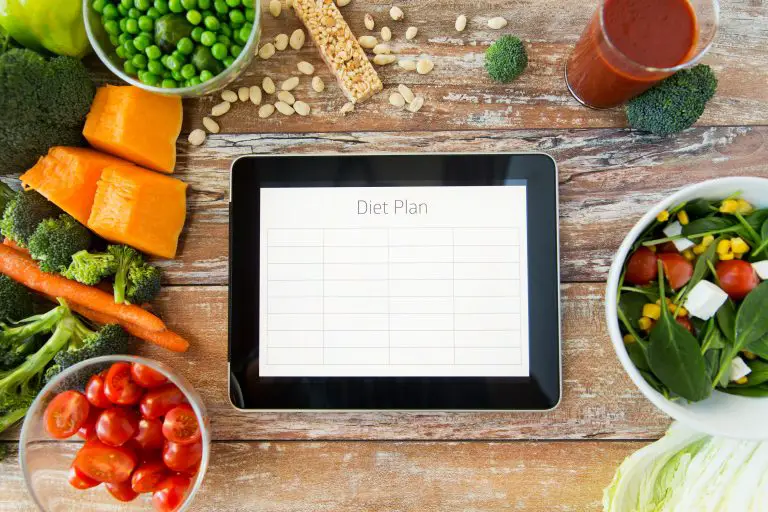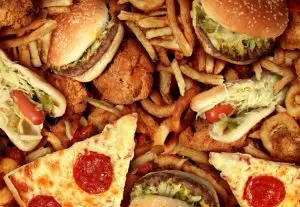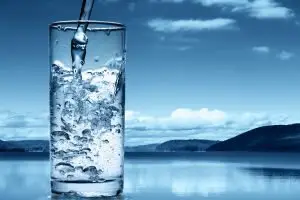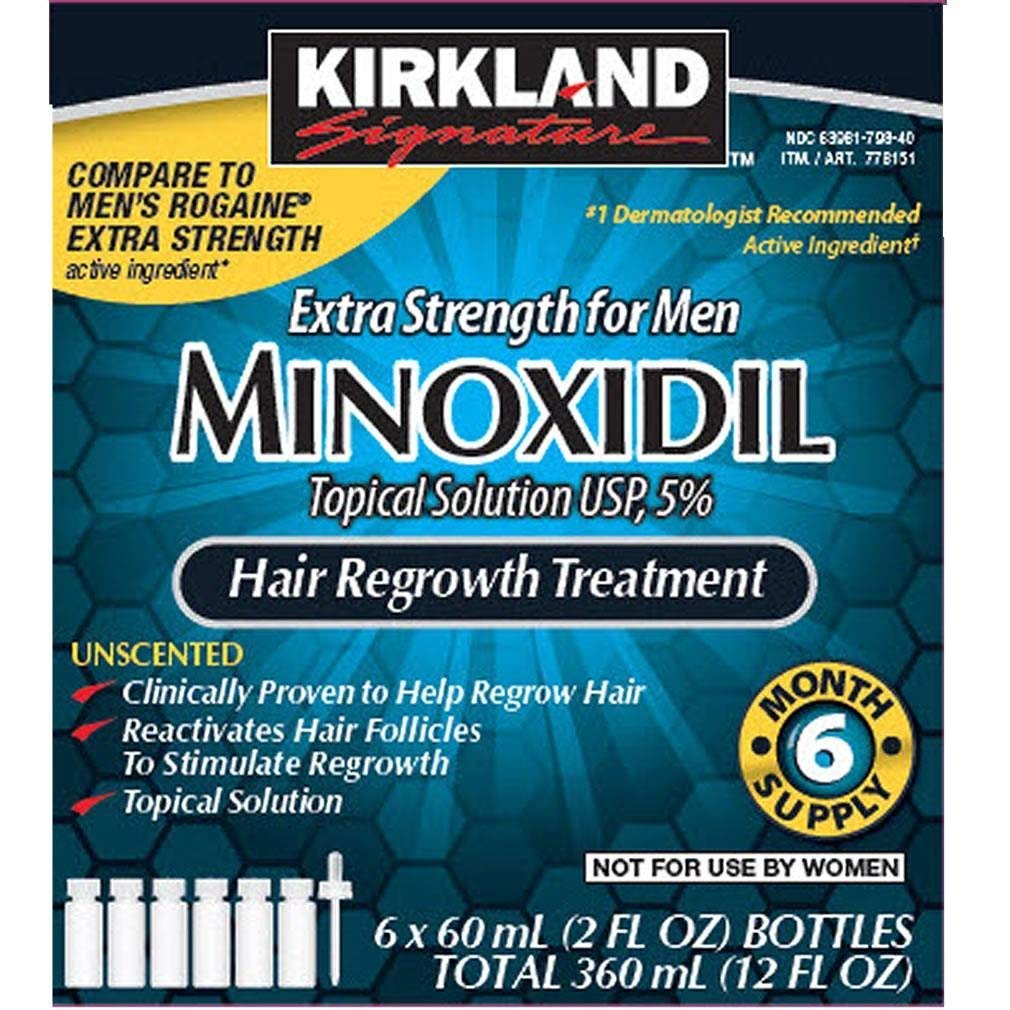
Page Contents
There are many reasons why a change in diet might be made necessary. You may be having stomach problems, want to lose weight, or simply want to eat healthier. Whatever reason, how your new diet will affect your hair is probably one of the last things you are thinking about.
Fad diets, in particular, often are hard to determine how they might affect your body’s health, much less your hair. What makes dieting and hair particularly troublesome is that it can sometimes take quite a bit of time to see it.
For example, if your new diet is lacking in some way, you won’t show signs of deficiency overnight. This makes your diet especially hard to confidently pin the blame on if your hair is suffering. This is also why taking your hair into consideration before you start dieting is so important.
There are so many extremely different diets out there, that there is bound to be one that both accomplishes what you are trying to do and that takes good care of your hair. Do your best to find that type of diet for you.
What Is Hair Loss?
As I’ve mentioned in other articles, hair loss is different from hair shedding. With hair shedding, the follicles will produce new hairs when the time is right. It is with hair loss that the follicles don’t regrow – in most cases because they are either dead or damaged.
Scars damage follicles, as do various scalp diseases and funguses that cause scaring. DHT and other things essentially strangle your follicles. Meanwhile, free radicals can do the same as well as causing more direct damage and eventually follicle death.
However, though damage and death might be the main reasons why follicles don’t grow new strands of hair, they are not the only reasons. Another, less common, reason for a lack of a new hair is a simple lack of materials.
It should be common sense to consider that your body can’t make something out of nothing. So, if your follicles don’t have the various building blocks they need in order to make your hair, they won’t be capable of making it.
Most often, deprived follicles will simply go dormant until such a time as they are given what they need. However, given enough time, follicles can die, as they do need nutrients as well in order to live. Therefore, the longer you make them go without the nutrients they need, the more likely you may cause permanent damage.
Fortunately, apart from this extreme case, hair loss due to deficiencies can be completely reversible. All you must do is start taking the nutrients you were deprived of. Your body will use it to fix other things first, but then your hair will start growing again.
5 Ways Diets Can Impact Hair Loss
Out of all the diets out there, some are more fraught with potential problems than others. Sometimes these diets are even more popular. When done right, most of these diets can be safe to try and will not damage your hair.
However, when done incorrectly, these diets can cause a lot of harm. This is why dieting should be something you look into and thoroughly understand before you start it. Don’t suddenly try to start a diet on a whim.
1. The Vegetarian Diet
Vegetarian diets – and there are a handful of different similar ones with subtle differences – are extremely healthy if done right. These diets, whatever their exact type, are high in plants and have little to nothing else.
What is the hardest about these types of diets is the fact that you need protein. Usually, you can get the amount of protein you need by increasing plant foods that have this in them. Unfortunately, this is sometimes not quite enough.
The more active your lifestyle, the more protein and calories your body is going to burn through. The problem for your hair here is that your follicles absolutely need protein in order to make your hair strands. When you lack the right amount of protein, your follicles won’t be able to make your hair properly.
This leads first to hair that is either brittle or thin – depending on the type of protein you are lacking. Eventually, your follicles won’t be able to make your hair at all, as all of your protein goes to more important things.
Also, iron is another hard thing to come by with a vegetarian diet, and one that is equally important for your hair. Iron does a lot for strengthening your hair, so it is something you will need as well for healthy hair.
There are a couple of other, slightly more minor things that this type of diet makes it harder to get, but those are the main two. So, it is important to take these concerns into consideration when you try this type of diet. If you don’t plan ahead and ensure you get proper amounts of what you need, your hair will suffer for it.
2. The Junk Food Diet

Though this would hardly be called a diet, it is still something that a lot of people’s diets are comprised of. Whether cooking is too difficult, or there is not enough time, fast food is called fast for a reason. Junk food is mostly fast food, but it is also foods that have little to no nutritional content in them.
In other words, chips, donuts, cookies, candies, sodas, and all those other things are junk foods. Even those healthy salads you can get at fast food places are hardly what you could call very nutrient-dense.
For starters, the type of lettuce in most of them has few vitamins at all, the dressing isn’t very healthy either, and the chicken or whatever meat is in it is often drowned in preservatives and other things – and, yes, that includes the ‘grilled chicken’ salads, just read the salad ingredients if you don’t believe me.
There are many problems with the junk food diet, many of which you are already fully aware of. For starters, it has basically no nutritional content. Meaning, you are not going to be getting the minimum amount of any of the vitamins and minerals you need.
Next, on top of that, junk food has so many preservatives in it that your body has to work extra hard filtering them out. This means, on top of not getting enough, your systems have to work even harder than they normally would.
This, especially if continued, is bad for things like our kidneys and liver. As your organs start to suffer for your dietary choices, it will make your hair suffer even more. Should you have serious medical problems due to a poor diet like this, the medications will quite likely make even more of a negative effect on your hair.
3. The Rapid Weight Loss Diet
Losing weight rapidly has a number of different diets that go with it. Many of these ‘crash’ diets give you barely what you need to function so that your body uses up its stored fats. While you may have fats stored up for this, you probably don’t have enough nutrients stored.
This means that crash diets are not going to be giving you what your hair needs, which we already went over is bad. While your extra fat might have enough calories to keep you going, it is also not going to be the protein that your hair needs.
In fact, the fact that your body is having to take what it has stored is extra bad for your hair. Your body will acknowledge that you are under stress – the stress of not having enough to eat – and will act accordingly.
This means that the protein and vitamins that have been stored up will be jealously rationed. Remember, your hair is at the bottom of the list when it comes to getting rationed nutrients.
And that is assuming that you don’t crash straight into bad eating habits once your crash diet is over. That is even worse for your body. Keep in mind, the crash diet was stressful for you, and then add on top of that the ‘cheat’ foods that you are splurging on that are probably not at all healthy.
That is a recipe for a rapid onset of hair shedding. That is even if the diet itself is not stressful enough to induce that all by itself. In short, there is almost no scenario where crash dieting is healthy for you to do. This type of diet is especially unhealthy for your hair and one that should be avoided.
4. Not Getting The Right Nutrients
As mentioned, nutrients are vital for your hair. Any diet that doesn’t have these things in it will be bad for your hair for obvious reasons.
Protein and iron, as already mentioned, are building blocks for your hair strands. Most proteins are found in meats, nuts, dairy products, and grains. Meanwhile, iron is found in meats as well, but also in various fruits and vegetables.
Biotin is another essential nutrient, and one that is in a wide variety of foods. It is one that you may be tempted to take as a supplement to make sure you are getting enough. The main vitamins your hair needs are A, B, C, D, and E.
These cover a number of things your hair needs, and they are found in most multivitamins or as individual ones. The B and D help make red blood cells, which are essential for getting the other nutrients to your follicles. The vitamin D is also used by your body to keep your hair, teeth, bones, and nails strong.
While a lot of fats may be bad, you do still need fats for your hair. Omega-3 fatty acids, for example, is a needed thing. It will help keep your hair moist and prevent it from getting brittle.
Finally, there are many minerals that your hair needs as well. These include: selenium, magnesium, zinc, copper, and iodine. There are mineral supplements for these, as well as mineral salts that you can sprinkle on your food.
Most importantly, make sure that your gut can absorb the nutrients you eat. Probiotics and prebiotics can help your stomach health, which helps you get the most out of what you eat.
5. Getting Too Much Of Some Things
You can be eating foods that are perfectly healthy, and even taking vitamins, but be getting too much of something. For example, skipping the salad dressing and going with a light drizzling of coconut oil may sound good.
However, too many oils in your foods – even good oils – are going to affect your hair at some point. The most likely effect of too many oils in your diet is hair that is oily and greasy. This, if not taken care of and washed out often enough, will clog your pores.
You can also be technically eating healthy and be consuming too many sugars. Sugars destroy proteins, taking away some of what you need for your hair. Aspartame is a sweetener that may or may not be linked to hair loss all on its own.
Vitamin A is another thing that you can get too much of, though maybe you weren’t aware of it. Too much causes vitamin A toxicity causing rashes, abdominal pain, and vomiting for sudden cases. For more mild long-term ones, it will cause hair loss, skin problems, and an increased likelihood of broken bones.
Selenium, like vitamin A, can be taken too far. The symptoms are hair loss, nausea, vomiting, bad breath, nail discoloration, fatigue, and irritability. Selenium toxicity is usually caused by taking supplements of it or eating too much Brazil nuts, organ meats, or certain types of seafood.
Dieting Without Impacting Hair Growth
Since the cells of your hair are the second-fastest growing in your body, they need support and nourishment. Your body also is well aware of the fact that you can live just fine without your hair. So, when doling out the nutrients you intake, your body naturally places your hair on the bottom of the list.
Your hair is, therefore, the first to get its nutrients cut if you aren’t getting enough. However, this also means that your hair is like an early warning system, as any deficiencies will show up there first. This can be in the form of some hair loss, but it can also be brittle, dull, or flat hair.
Just keeping your hair’s needs in mind when you diet is enough to make a little difference. Also, doing blood work a few weeks into your new diet should be done to let you know if you are lacking something and might need to make some adjustments.
Taking vitamins, supplements, or minerals of some type can help with this and should be done regardless. Also, as mentioned, avoid the diets that might stress your body in some way or another.
A Word On Water

One thing about diet that I haven’t mentioned is how important water is. Though water may be the last thing that comes to mind when talking about a diet, it is just as important as the foods you eat – or don’t eat.
Not only does your hair need water too, but water is vital for your organs. Getting dehydrated too much too often will only put strain on your body. This strain will most likely show itself in many ways, one of which being unhealthy hair.
Best case scenario, your scalp will get extremely dry, possibly to the point of being itchy. Your hair may also start becoming brittle. And those are just some of the more minor possibilities. In short, your body will not function properly without enough water.
On this note, liquids like soda and alcohol should be avoided. These are both bad for your stomach as well as your overall health. Mineral waters and vitamin-enriched ones are great, on the other hand.
Conclusion
Dieting can be really good for your health in some ways. You just need to be careful when dieting that o don’t cut out the things your hair needs. A good diet can even be good for your hair and help it to grow better, not to mention being good for your overall health.
After all, what is good for your hair is also good for your nails and skin as well. This means a completely healthy look in every way. So, start off with a good breakfast – meals later in the day are harder to digest.
If you need help getting started to decide what diet is right for you, talk to your doctor and get a blood test. A doctor, especially a dietitian, should be able to point you in the right direction. Meanwhile, the blood test will show you if you are low on something so that your new diet can fix that.






